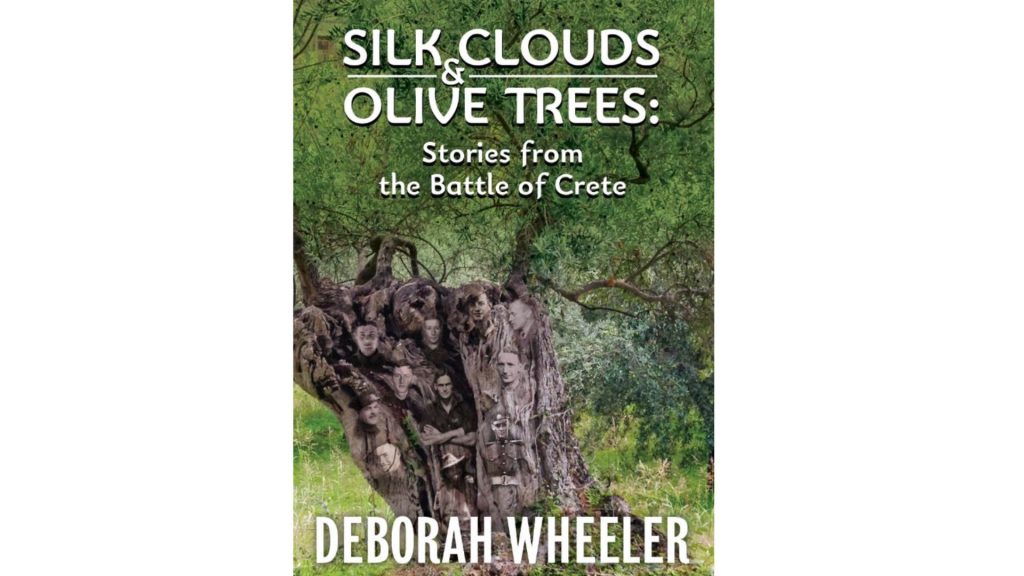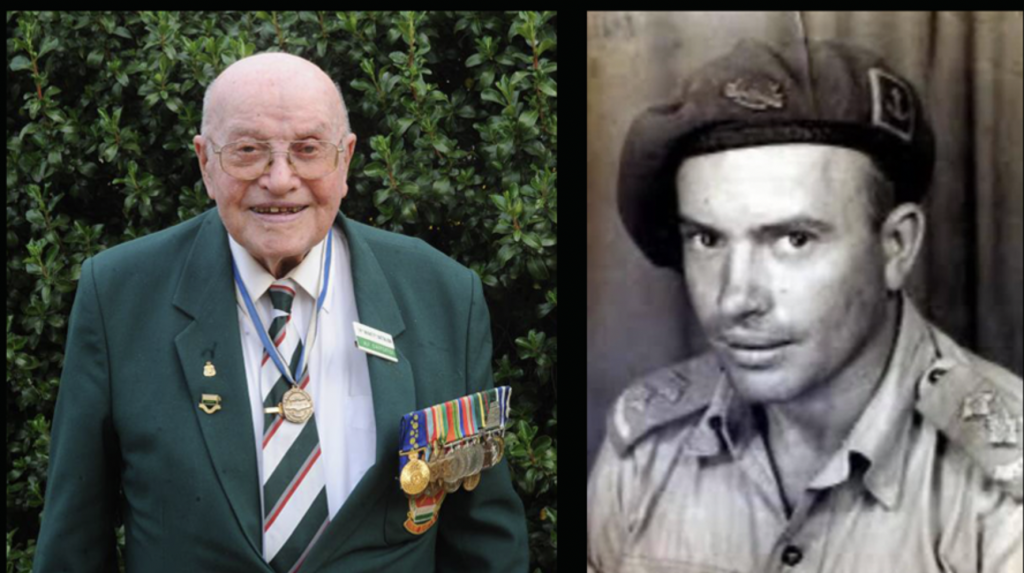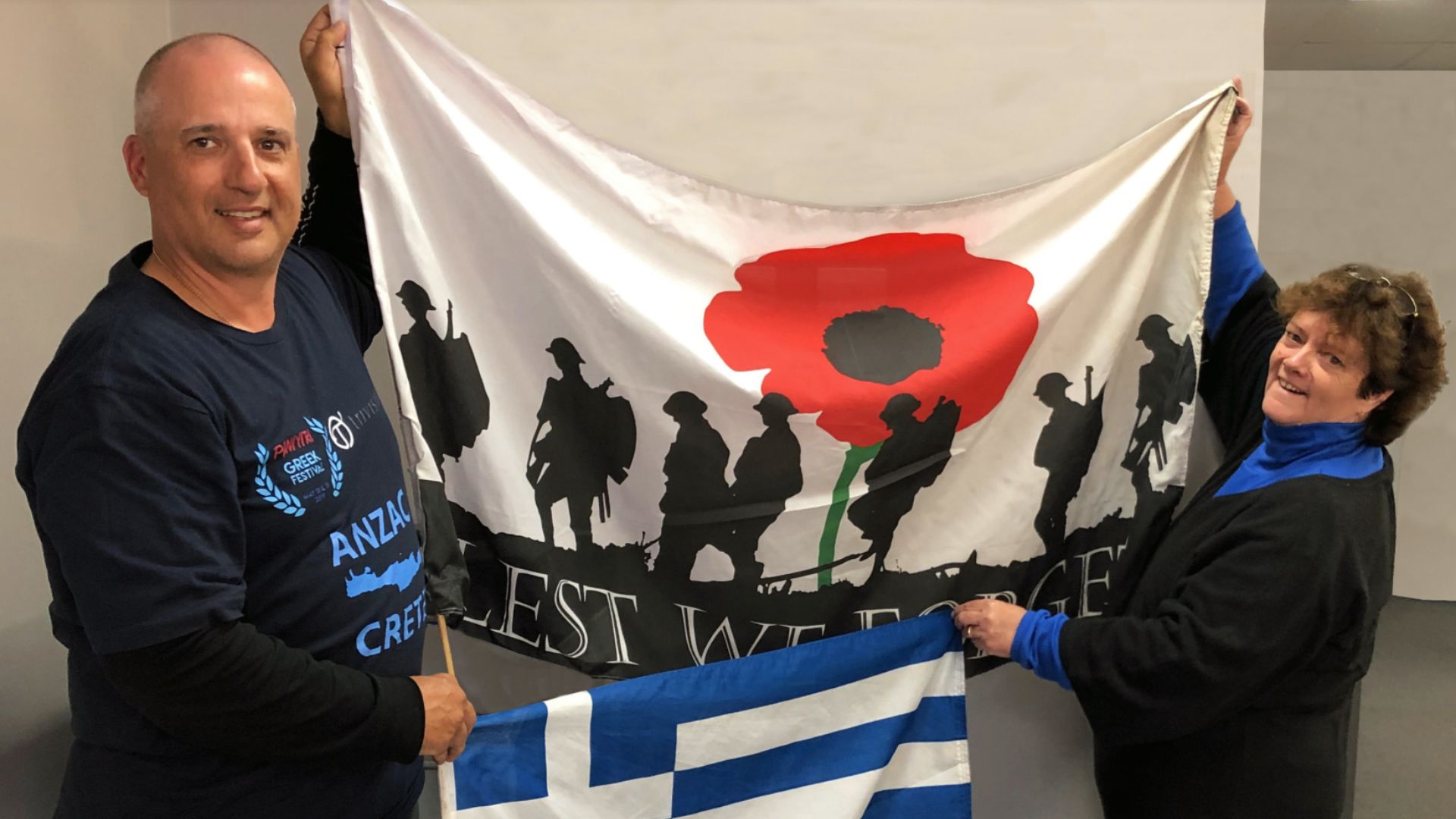After an extraordinary encounter with a man walking in southern Queensland holding a Greek flag and an ANZAC Remembrance Flag, author Deborah Wheeler knew she had to stop and find out more.
The subsequent conversation changed Deborah’s life and led to her new book ‘Silk Clouds and Olive Trees: Stories from the Battle of Crete.’
In an interview with The Greek Herald, Deborah talks about this book and how it was the gateway to a friendship with the late Battle of Crete veteran, Alf Carpenter.
1. Tell us about ‘Silk Clouds and Olive Trees: Stories from the Battle of Crete.’
One day while driving to a nearby town in southern Queensland, I saw a man walking along the side of the road carrying a Greek flag and an ANZAC Remembrance flag. I knew I had to stop and speak to him. So in essence, this book was born from a road side conversation.
Andreas Lionakis was doing a walk from Brisbane to Wallangarra and back, some 520 kilometres. This walk was done in memory of his father, Tim Lionakis, who had fought alongside the Allies against the German invasion of Crete. I had never heard of the Battle of Crete and as I listened, I was fascinated and acknowledged I need to learn more.

2. What is your connection to the Battle of Crete and in particular, the late Alf Carpenter?
During Andreas’ walk, many people stopped to talk with him and some were able to tell him stories of their relatives who had fought in the battle. I knew some of the people who spoke with Andreas and so I contacted them. After hearing their stories, I knew I had to record these stories before they were lost.
Alf’s name came up during my early research as he had a connection with another soldier I was writing about. I rang Alf and told him my story. Needless to say, Alf was more than happy to speak and share his story with me. In total, the book records the stories of twelve Australian and New Zealand soldiers.
When I was compiling the final chapter of the book, where I record the names of all the ANZACS who are buried in the Suda Bay Cemetery, I received a shock. It was not until this moment that I realised my father’s cousin was one of the men buried on Crete. Private Albert Edgar Geale, NX13466, 2/2nd Infantry Battalion was killed by the Luftwaffe on June 1, 1941 after the Allies had surrendered to the German forces.
Being the only Second World War veteran still alive with connections to my book, Alf was able to verify many things I had written about. So much so that he wrote the Foreword for the book. It was such a humbling experience to have such a knowledgeable and generous man work so closely with me. We spent hours on the phone talking not only about the war but about many aspects of Alf’s long and eventful life. He was a real character and someone I came to admire and love as anyone who knew him can attest to.

3. Why do you think it’s so important to record the history of the battle?
Alf was one of only a handful of veterans still living who experienced the battle firsthand. It is essential we capture this knowledge as it puts a different perspective on war history. The facts and figures recorded in military files is very valuable but firsthand stories from the men involved, those who were on the front lines, is priceless. This is where we learn about the on-the-ground incidents, the feelings they experienced and the lifelong friendships forged in some indescribable conditions on the battlefields.
Film director, Jeff Hughes, was at the launch of my book in Brisbane and he helped organise a Zoom link so Alf was able to be a part of the event. Afterwards Jeff approached me and asked if we could look at doing a documentary on Alf’s life. Once I explained this to Alf, he was happy to be a part of our joint venture.
You realise just how important it is to record the memories and history of the Battle of Crete when we lose our few remaining veterans. Fortunately, we now have Alf’s story recorded in ‘Silk Clouds & Olive Trees: Stories from the Battle of Crete’ and also in his film ‘Second Generation ANZAC: The story of Alf Carpenter.’
As many at Alf’s funeral on September 15 commented, he will never be forgotten and when we have the opportunity of hear him talk whenever we watch his film. Alf loved the Greek people and this love was returned by the Greek people. We may have lost Alf but his story will go on for all time.
4. Is there anything else you want to say?
I encourage all veterans to take the time to tell their stories, name their photos in whatever format this may take. It is too late for us to learn and understand what you experienced and who you shared these experiences with when your time with us comes to an end. History is important but never more so than when it gives us the opportunity to keep someone’s story alive for all time. Your story is important, please share it while you can.
READ MORE: 105-year-old Battle of Crete veteran Alf Carpenter passes away

